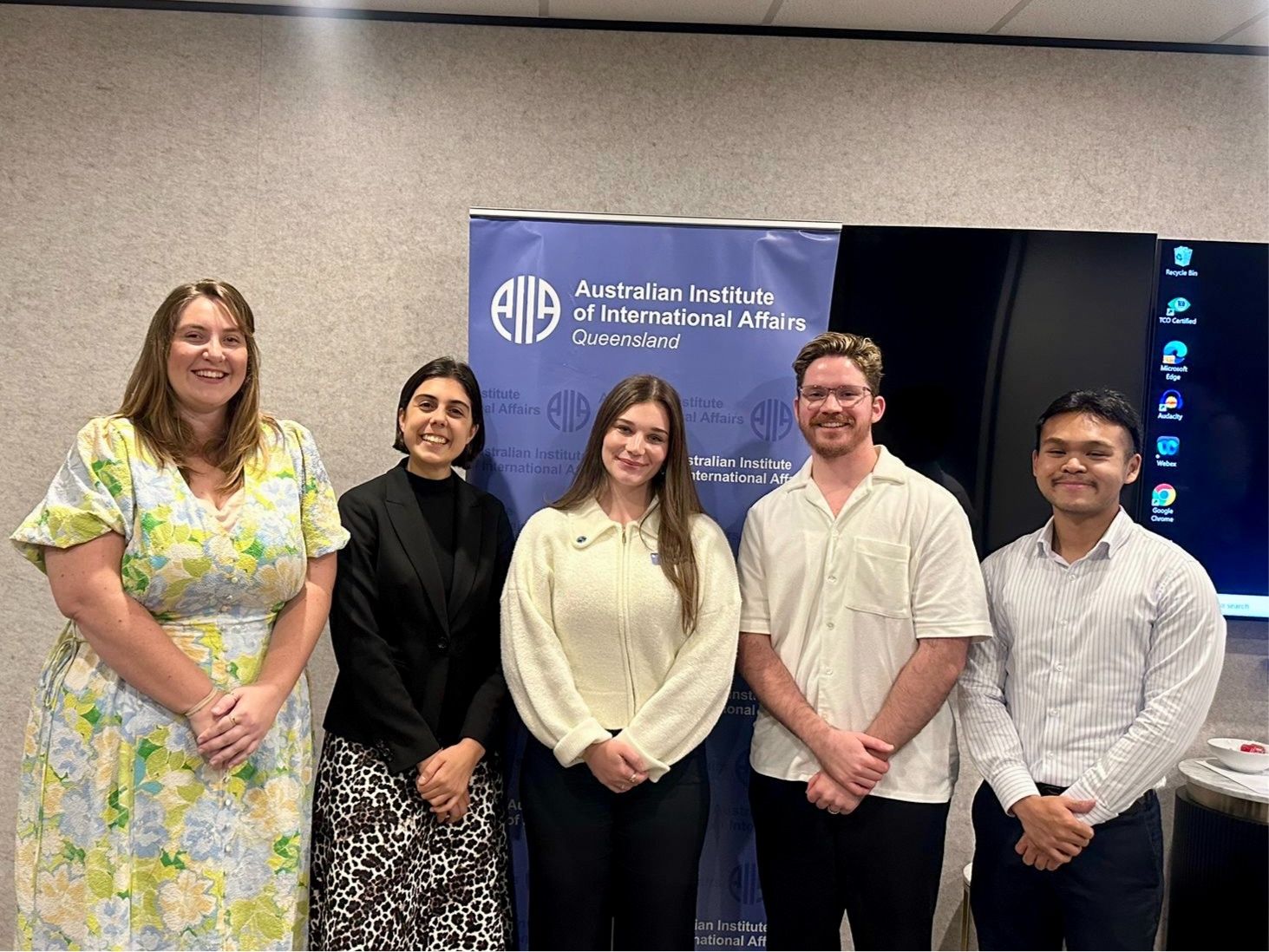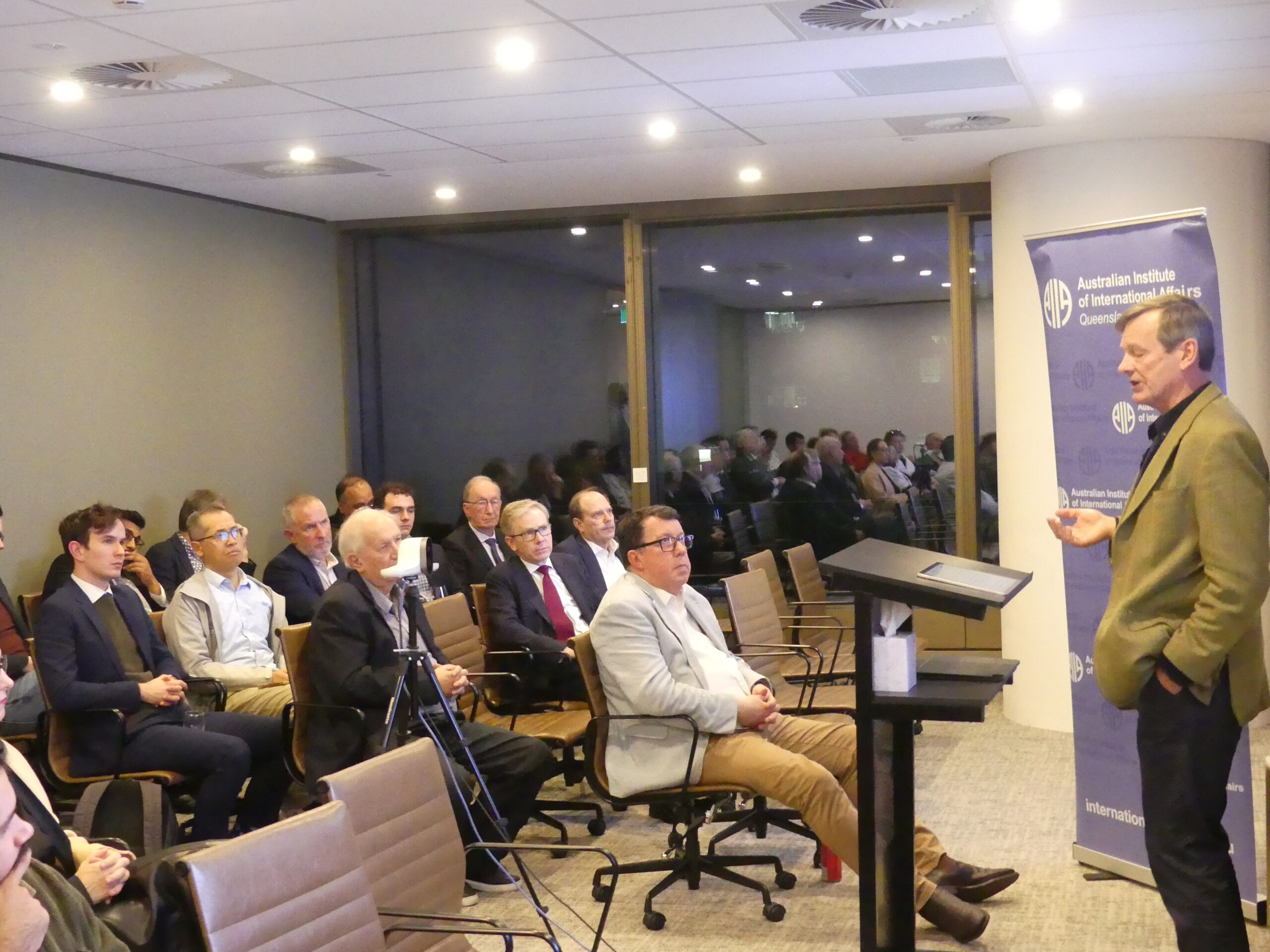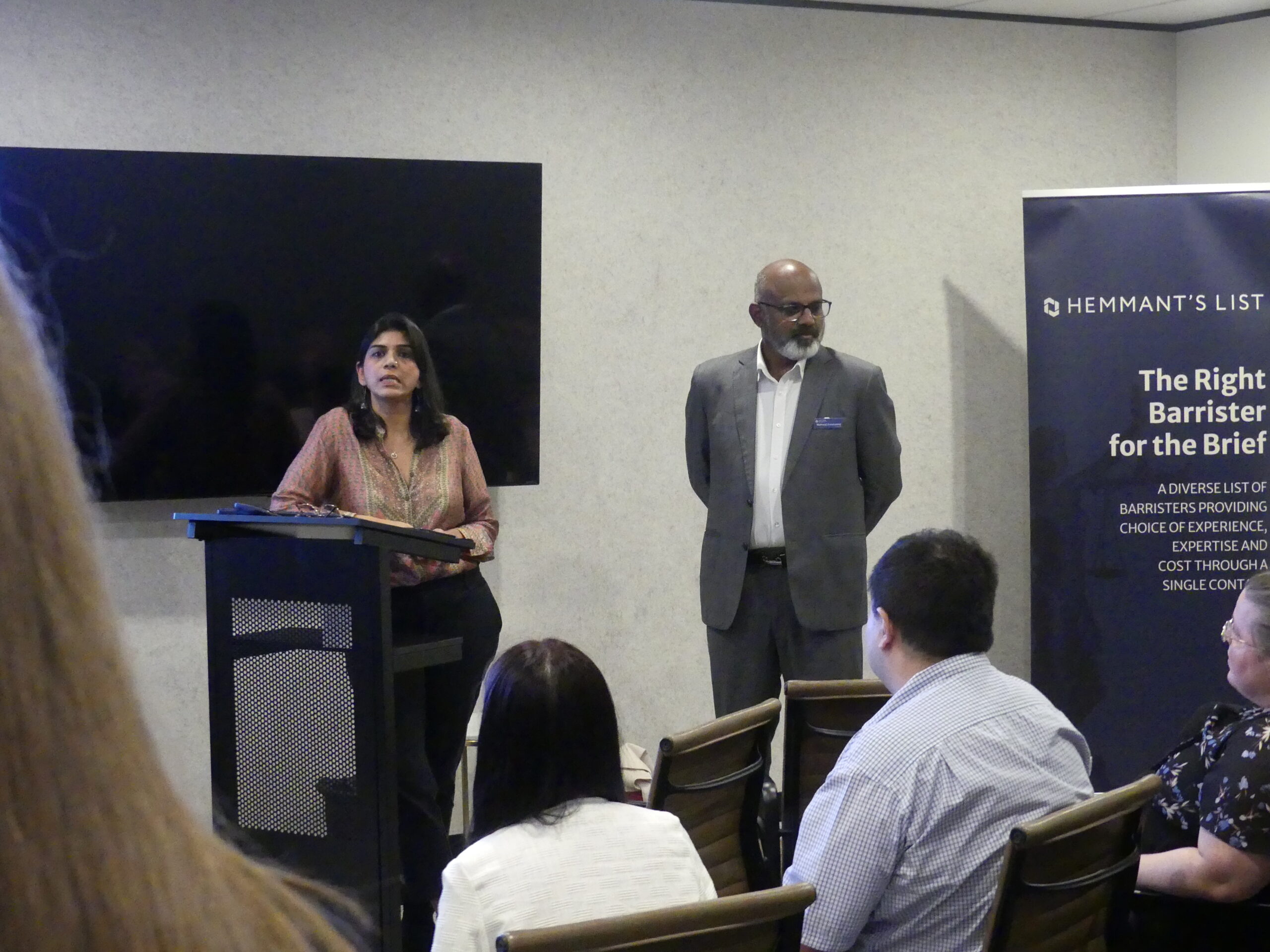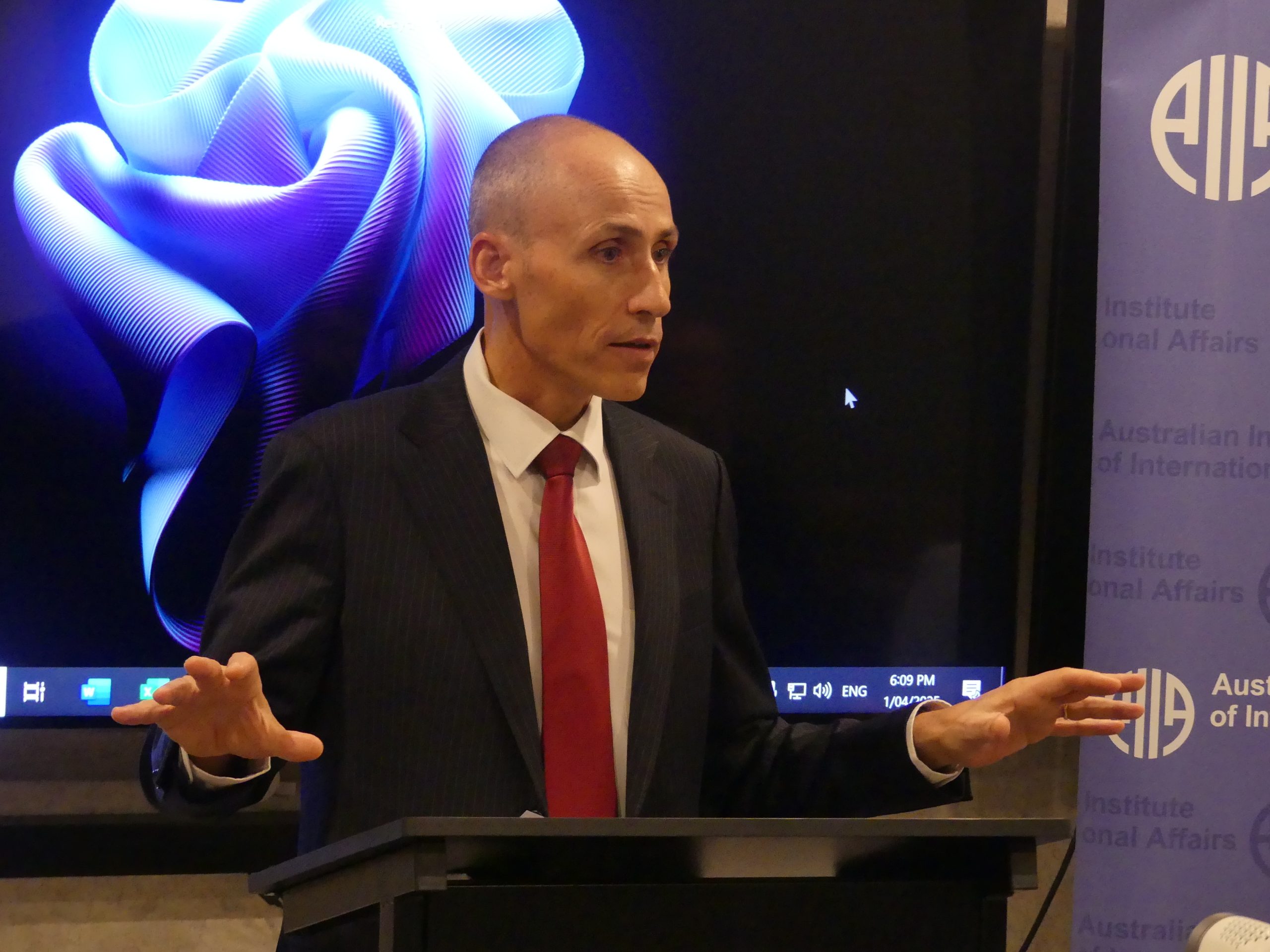Written by Liubov Korina
Global temperatures are rising, and so too are sea levels. Extreme weather disasters from droughts and wildfires to floods and cyclones are now facts of life for many around the world. These effects transcend beyond the imminent consequences of natural disasters, with failing global healthcare systems urging the need for climate action. And still, the link between climate change and healthcare is only understood by few.

Dr Connie Cai Ru Gan (image supplied)
On July 23, the AIIA Queensland welcomed Dr Connie Cai Ru Gan, a lecturer, researcher and practitioner in the School of Medicine and Dentistry at Griffith University, to offer insights into tackling these pressing issues. While Dr Gan emphasised the ticking of the climate clock, she also provided realistic examples of innovative community-based solutions towards regenerative climate action. A new narrative was set – it is now time to talk about the climate crisis as a health crisis too.
Climate change is the greatest global health threat facing the world in the 21st century.
Dr Gan’s presentation was built upon the central idea that to understand the ongoing debate about the reality of climate change, we must first realise that our lives are filled with contrasting perspectives. And more importantly, how such perspectives play a pivotal role in shaping our attitudes toward different conversations, ideas and positions. As there is no one-fits-all solution in addressing the complexity of climate change, Dr Gan explained that a first step would be to understand why different perspectives exist.
Providing context, Dr Gan presented two key viewpoints regarding an individual’s outlook on climate change. The first is the ‘enemy is out there’ syndrome, in which an individual has a narrow sense of self-identification and freely blames the outer community. In contrast, the second is ‘Ubuntu’, an ancient African word that translates to “I am because we are,” or rather, that our humanity is interconnected.
Understanding our privileges is important to understanding our perspectives.
In Dr Gan’s view, there is a clear divide separating these outlooks that inform the urgency for climate action within societies around the world. She acknowledged that context plays a fundamental role in their formation, asking the audience to consider their own standing and their own position. For those living in Australia, Dr Gan argued that perhaps it is easier to associate climate change as a distant problem. That our perception of climate change is the melting of glaciers and stranded polar bears. Yet the recent floods, droughts and bushfires have made one thing very clear – a simple look in our own backyard should be convincing enough to recognise the reality of climate change.

An activity on perspective given to the audience (image supplied)
Dr Gan instead, painted a different picture through her personal and professional involvements in various regenerative projects, including KONEKSI and WHO Nepal. For Dr Gan, “you don’t need to convince them [the Nepalese people] it’s a real thing, they will tell you themselves.” To see more unison within differing perspectives, Dr Gan suggested that a more novel approach is needed – one that frames the climate crisis as a health crisis too.
Yet of concern for Dr Gan is that the window of opportunity to act is getting smaller and smaller. Ongoing natural disasters around the world have made it extremely difficult for healthcare systems to bounce back. Poorer quality healthcare standards, lower access to hospitals, and higher costs of treatments are now innate consequences of climate disasters. With knowledge that such disasters occur, there is continuing concern over the lack and even absence of adequate policies regarding disaster preparedness. For Dr Gan, the short and simple answer is that climate change has made it difficult to anticipate health and environmental changes associated with related disasters. From observations made, she indicated that globally, the current health infrastructures are ill-prepared, all contending with problems arising in duplications, fragmentations, and confusion regarding the definition of sustainability.
Drawing on innovative solutions in leveraging technology, data, scientific research, collaborative action and bottom-up initiatives, Dr Gan demonstrated the ways to address climate change through different healthcare initiatives. By looking after our planet, we reciprocally, look after each other.
Taking questions from the audience, she explained the ways that local knowledge can be understood and incorporated to collectively address climate change. Global regenerative partnerships, Dr Gan explained, are an effective way to broadcast these. Such actions do more than just reduce environmental damage – they integrate local knowledge and adapt solutions to specific contexts, address unique needs and gain cultural acceptance, which in the end, makes them more useful.
Flooding or flourishing, real or not real, it all depends on the perspective, but it’s most important that we move to the goal of protecting our humanity.
Every day exists an opportunity to choose our perspectives. Regardless of having the view that the ‘the enemy is out there’ or one of ‘Ubuntu’, the truth for Dr Gan is that we are all part of a larger system, and our actions do impact each other. Following on, Dr Gan was also asked if she sees the two perspectives coming together for the better of humanity, to which she replied with an optimistic, “I hope so.”
Climate change is undoubtedly a universal health emergency. According to Dr Gan, the way forward must be a collaborative commitment to climate and health action that will bring about a more sustainable, habitable, and unified world.

From left to right: Ingrid Valladares, Muthuraj Guruswamy, Dr Connie Cai Ru Gan, Gaby Hernandez, The Hon. Paul Lucas
Edited by Benjamin Colter
Currently in her final year of studies, Liubov Korina is pursuing a double degree in Economics and Arts, with majors in International Relations and Peace and Conflict Studies at the University of Queensland. With particular interest in the intersection between economics and politics, Liubov is aspiring to be part of bringing about sustainable peace around the world through diplomatic and peace-building efforts.




